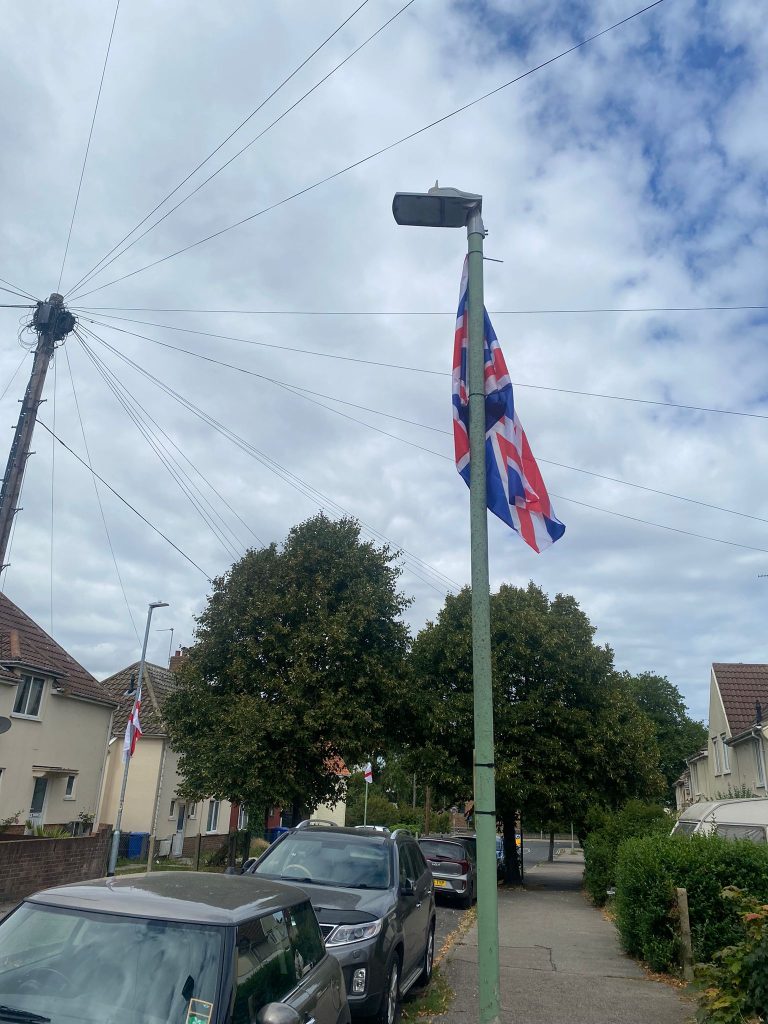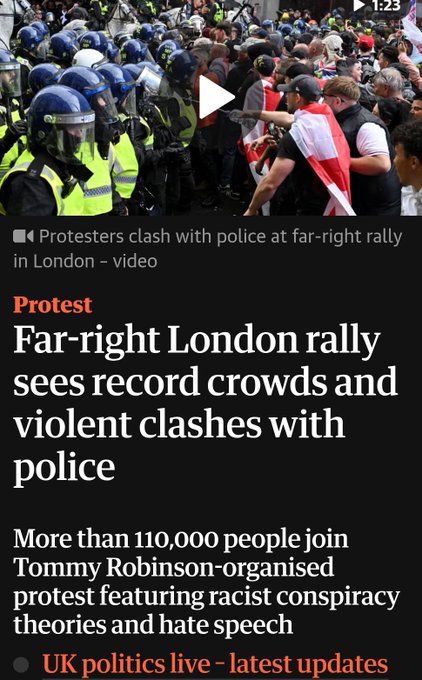If you’ve seen videos or marches from groups like Britain First, you’ll have noticed something: crosses on flags, crusader imagery, and plenty of talk about “Christian Britain”. This isn’t new, far-right groups have been doing it for years. But it’s become louder, slicker and more deliberate.
The question is: why are they doing it? And how has Christianity, a faith built on love, compassion and forgiveness as been turned into a political prop by groups promoting division and hate?
The UK might be a largely secular country these days, but Christianity still carries deep cultural weight. Churches, hymns, holidays. they’re stitched into our history. For far-right movements, that makes Christianity an ideal symbol to claim.
By wrapping themselves in the cross, these groups make their message sound like it’s about heritage, not hate. “We’re defending Christian Britain,” they say, which sounds a lot less extreme than “We don’t want Muslims or migrants here.” It’s a clever bit of moral rebranding.
Groups like Britain First have been doing this for years. They’ve staged “Christian patrols” outside mosques, marched with crosses and Bibles, and talked about protecting “Christian values”. Yet their version of Christianity is political, not spiritual. rooted in fear of outsiders rather than love of neighbour.
One of the most striking symbols you’ll see at far-right rallies is the Templar cross. It’s a red cross on a white background, used by the medieval Knights Templar during the Crusades.
To most people, it’s just a bit of history. But to the far right, it’s become a badge of identity, a way of signalling “defence of the West” and “protection of our faith”. In online spaces, you’ll find countless profile pictures, memes and T-shirts using that cross alongside slogans like “Deus Vult” (“God wills it”), echoing crusader rhetoric from the Middle Ages.
It’s meant to look noble and spiritual. But underneath, it’s a call to arms so to speak suggesting that modern Europe is under siege from Islam, migrants or liberal values, and that “true Christians” must rise to defend it.
Why the far right uses Christianity
1. To look respectable: Open racism is widely condemned in Britain. But talking about “Christian culture” or “Christian values” gives extremists a moral cloak. It makes their message sound civilised, even patriotic, instead of hateful.
2. To tap into nostalgia: When they talk about “Christian Britain”, what they really mean is a nostalgic, imagined past. a time before immigration, diversity or social change. It’s a myth of purity and simplicity that never truly existed, but it’s powerful for people who feel lost in modern life.
3. To create an ‘us versus them’ narrative: Using Christian symbols helps the far right draw a line between “us” (the supposed defenders of faith and tradition) and “them” (Muslims, migrants, liberals, anyone who doesn’t fit the mould). It’s not about belief, it’s about belonging and exclusion.
4. To moralise their politics: By claiming religious justification, far-right leaders can present their politics as righteous. It’s not just a policy view, it’s a “holy duty”. That gives their followers a sense of purpose, even mission.
How they spread the message
Online propaganda: Social media is full of crusader crosses, Bible quotes taken out of context, and memes linking Christianity to nationalism. It’s an easy way to recruit people who already see themselves as “cultural Christians” but feel disconnected from modern Britain.
Public stunts and rallies: Groups like Britain First have long used street theatre, crosses, prayers, “Christian patrols” to attract attention and provoke reactions. The visuals do the work: they say “we’re the righteous side”, even when their actions contradict Christian teachings.
Christian-branded front groups: Some activists have tried to set up organisations that sound like faith groups but push far-right talking points. They use church language, but their goal is political influence, not spiritual growth.
The biggest issue is that this co-option twists Christianity itself. The central messages of the faith, love, mercy, welcome for the stranger ,are turned inside out. The cross becomes a symbol of exclusion rather than compassion.
It also creates division. When far-right groups claim to speak for “Christian Britain”, they alienate other faith communities, deepen mistrust and fuel a false idea that religion and diversity can’t coexist.
And for real Christians, it’s painful to watch their faith used to justify hate. Many churches and clergy have spoken out, saying bluntly: this is not Christianity.
Faith leaders, community groups and ordinary people all have a role to play here. The best response isn’t silence, it’s clarity.
- Call it out when far-right groups misuse Christian symbols.
- Educate people on the difference between faith and political propaganda.
- Promote inclusion through churches and community spaces that live out real Christian values of compassion, justice, welcome.
The far right’s use of Christianity isn’t about God, it’s about power. They’ve realised that the cross is an easier sell than a clenched fist. But the truth is simple: Christianity doesn’t belong to hate groups, no matter how many flags they wave.
Real faith doesn’t build walls, it opens doors. And Britain doesn’t need to “defend” Christianity from outsiders. It needs to defend it from those twisting it to divide us.
@newdaystarts





